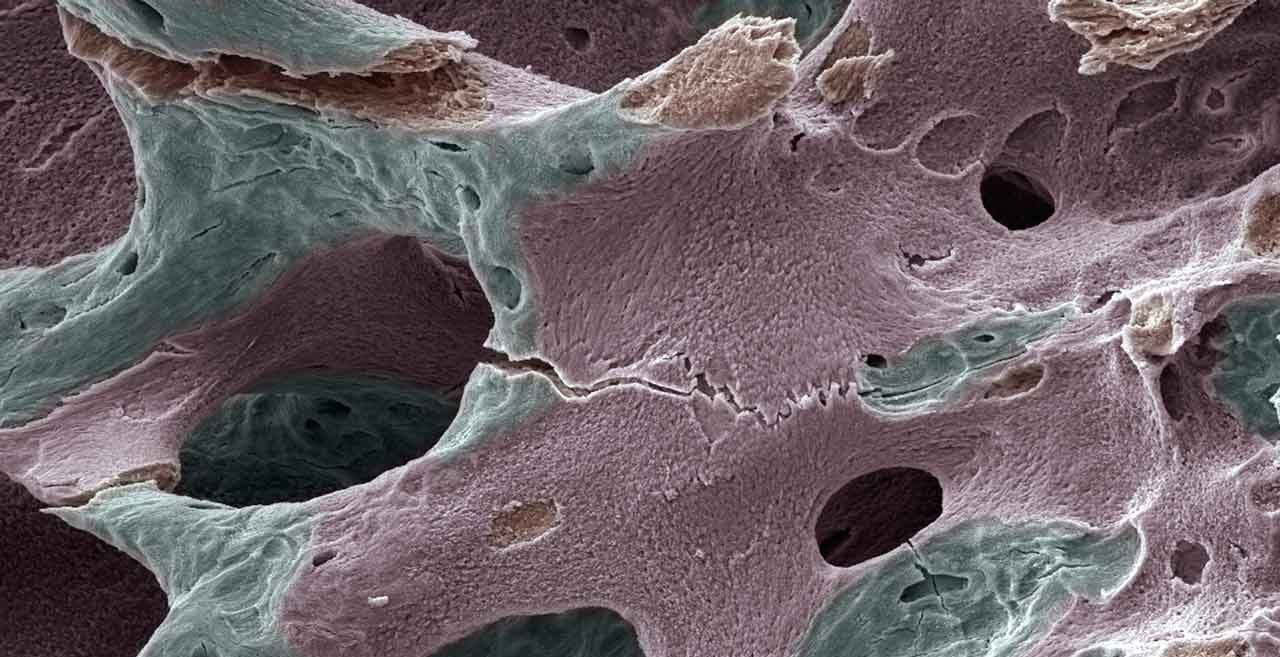Bone Loss May Be an Early Sign of Alzheimer's

A simple bone density scan may eventually show who is at risk for developing dementia, as reduced bone mineral density may be one of the early signs of Alzheimer's.
Alzheimer’s disease, or AD, is the most common form of dementia. It often begins with mild memory loss and cognitive impairment. Advanced Alzheimer’s, however, destroys a person’s ability to reason, remember, and make decisions, eventually becoming so severe that patients can no longer care for themselves.
When a person develops AD, cells known as beta-amyloid and tau proteins begin to form abnormal deposits throughout their brain, clogging nerve receptors and causing the decreased cognitive function that characterizes advanced Alzheimer’s disease.
YOU MIGHT ALSO LIKE: When to Worry About Memory Loss
The damage Alzheimer's causes
Much of Alzheimer’s research focuses on identifying changes in beta-amyloid and tau proteins before they begin damaging the brain. This research affects millions of lives. Alzheimer’s disease is the seventh leading cause of death among adults in the United States, according to the Centers for Disease Control and Prevention. It is the sixth leading cause of death for adults 65 and older. More than 6 million Americans suffer from the condition.
But scientists still haven’t figured out what causes it.
Age is the biggest risk factor, with most cases occurring in people over the age of 60, but young people can develop AD as well. Family history and genetics may play some role, but fewer than 5 percent of cases have a clear genetic cause.
As a result, it is nearly impossible for doctors to say who will develop AD before they begin showing symptoms.
An early sign of Alzheimer's?
Published in the Neurology, researchers have found that reduced bone mineral density may be one of the earliest warning signs of Alzheimer’s disease.
Many early symptoms of AD — including depression, anxiety, mood swings, sleep problems, and weight loss — are linked to decreased production of the chemical serotonin in the brain. Nearly all Alzheimer’s patients also experience bone loss, or osteoporosis, and an increased risk of fractures.
The research on bone loss
The researchers looked at bone mineral density in the neck, spine, and body of 3,651 study participants, with follow-up examinations after 10 years. Those with osteoporosis in their necks were more likely to develop Alzheimer’s. Eighteen percent had developed some type of dementia; nearly 77 percent of those people had AD.
In a previous study, researchers used htau mice, or mice that have been genetically altered to have a human form of the tau protein that becomes abnormal during Alzheimer’s disease. They examined the bone mineral density of both male and female mice before they developed signs of tau dysfunction.
They found that the mice showed significant reduction of bone mineral density when compared to normal mice. Additionally, they discovered a link between bone mineral density and symptoms due to low serotonin in the area of the brain known as the dorsal raphe nucleus.
The structure not only regulates the growth of the adult skeleton but also produces most of the brain’s serotonin. The dorsal raphe nucleus in the mice seemed to undergo major changes long before there were any signs of tau abnormality.
The studies are not conclusive; further research is needed in humans on the predictability of a link between bone loss and dementia.
What you can do
Once you have osteoporosis, you might need to take medication — a group called bisphosphonates that includes alendronate (Fosamax) and risedronate (Actonel).
Women may take estrogen or a medication called raloxifene (Evista), and men may take testosterone. Other drugs given by injection can help.
You can also eat more food containing calcium, or take supplements and vitamin D.
Don’t neglect exercise. Research shows that exercise prevents the chance of a fall-related injury even in people 80 and older. Besides the benefits for your overall health and mood, weight-bearing exercises will make you stronger. Try climbing stairs, doing squats and push-ups, and working with resistance bands or weights.
Updated:
April 19, 2023
Reviewed By:
Christopher Nystuen, MD, MBA